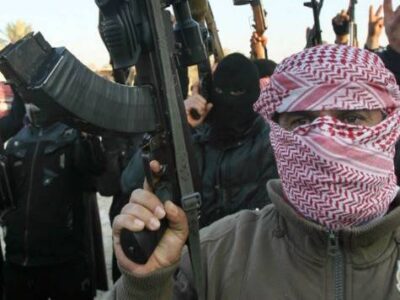
The real threat is Islamic State not Al-Qaeda
Mr. Nasr, what many have been fearing in recent days has come to pass: On Thursday, an attack at the Kabul airport claimed the lives of at least 80 civilians and 13 American soldiers.
From a very early stage, there was much to suggest that this attack originated with the Afghan branch of the Islamic State (IS), which has since claimed responsibility for it. They were IS suicide bombers.
It is the only group that has an interest in an attack like this, because by doing so, the IS fighters are showing that the Taliban are unable to take control of the city they have captured. And they are distancing themselves from the Taliban, which for days has tolerated Afghans being taken out of the country on planes. Many consider this to be a betrayal, not only the supporters of IS.
Thursday’s attacks have put them in an extremely difficult situation. Attacking the Americans in the last days of their withdrawal was not in the Taliban’s interest. They had defeated the world’s greatest military power – why would they attack the Americans and risk everything they had achieved?
But now they have to respond – that is, strictly speaking, they now have to fight the war on terror, but on their own, without the support and technical equipment of the U.S. Army. That is going to be complicated no matter how you look at it.
IS has long been an opponent of the Taliban. It was the Islamic State that most recently carried out the major, deadly attacks in Kabul. It is the real threat, not al-Qaida. The Americans took massive action against IS fighters in the country. But will they continue to do so – with armed drones or cruise missiles?
No one can say at this point. For now, the Taliban are on their own, and no one knows if their fighters can do the job. But there’s also another problem: If the Taliban now carry out anti-terrorist operations, this could divide the country into two camps. All those who no longer feel represented by their new government could then radicalize further and possibly join IS.
The new head of their political office, Mullah Abdul Ghani Baradar, spent eight years in prison in Pakistan. He was a close friend of the former Taliban leader Mullah Omar. The group’s new No. 2, Sirajuddin Haqqani, belongs to the militant Haqqani network, which has close ties to al-Qaida.
And the recently appointed governor of Khost, Mohammad Nabi Omari, spent 12 years in Guantanamo and was only released thanks to a trade that was made for a U.S. hostage. These are still the same people and the ideology has remained the same. But they are now acting more politically, more strategically adept. They have learned.
Both terrorist groups will strengthen their own ranks after the Americans withdraw. But the crucial point is this: We don’t yet know what course the new Taliban government will take. Will it leave women in certain positions? Will girls still be able to go to school?
Will it allow the Shia in the country to practice their faith? Nobody knows yet how they are going to act. The whole world is watching – the West, but also the Afghans. If this new course isn’t to their liking, it will attract new fighters, particularly to the IS, and it could lead to internal conflicts, fighting and attacks in the country.
Source: Spiegel





